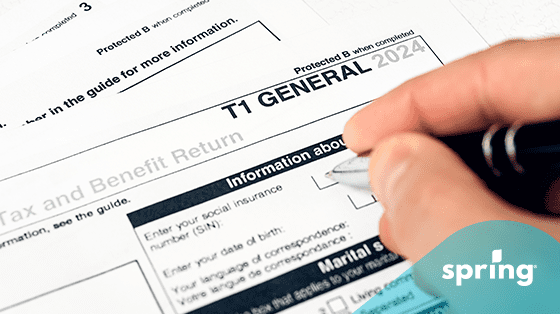Indeed, many Canadians are unaware of the country’s debt collection regulations. It raises a lot of questions about what a collection agency can and cannot do in Canada.
This article covers the scope of collecting agencies and the rules that govern them, but it is worth noting that the rules and regulations vary from one province to the next.
How Long Can Debt Collectors Try to Collect in Canada?
Debt collectors in Canada are prohibited from taking legal action six years after a debt has been paid or acknowledged. This, however, varies in some provinces, where the Statute of Limitations period is shorter. For example, the timeframe in Ontario and Alberta is merely two years from the date of the last payment or acknowledgment of the debt.
|
|
|
|
Canadian Debt Collection Laws
In Canada, federal law governs debts owed to a federally regulated financial institution (FRFI) or a third party acting on its behalf. However, if a debt owed to an FRFI has been sold to a collection agency, provincial or territorial laws—not federal laws—protect the rights of the debtor.
In Ontario, for example, debt collection is governed by the Collection and Debt Settlement Services Act. It lays out strict rules that limit debt collectors’ scope of action while safeguarding the rights of consumers.

How to Deal With Collection Agencys in Canada
After getting notification that a creditor may transfer a debt to a collection agency, the first wise step is to call the creditor as soon as possible to work out an arrangement. For instance, settling on a specified sum or making other arrangements might prevent the debt from going to collection. Indeed, when a creditor sends a debt to a collection agency, the person’s credit rating worsens, potentially causing future issues with credit, insurance, employment, rent, and other complications.
If the debt has already been transferred, it is essential to note the collection agency and the name of the person who is reaching out, as well as their contact details.
You will go through the agent’s verification process which entails inquiring about the debt’s key features, such as the amount owed, the payee, and the commencement date. It’s wise not to openly acknowledge the debt until you have a chance to examine all invoices and bank records to ensure all details— including the amount owed—are accurate.
If the debt is acknowledged, the following steps should be taken according to the Canadian government:
- Avoid cash payments
- Always ask for payment statements
- Always go through the debt collection agency in charge of the case
- Avoid reaching out to the creditor directly
In case you are unable to fulfill your obligations:
- Describe your situation to the agency
- Discuss alternative repayment plans, such as recurring payments
- Make a written follow-up
- If possible, provide an initial payment to demonstrate your willingness to repay the loan.
Debtors can ask collection agencies to contact them solely in writing or through legal counsel. To do so, the debtor must submit a formal request by registered mail to the collection agency. Your preferred contact information must be included in the request.
When Do Collection Agencies Give Up?
Collection agencies may eventually give up recovering unpaid debts if the debtor’s cost-to-revenue ratio is not worth it. However, they may also never give up if the debt is significant enough to justify collecting, even if the statute of limitations has expired. If you have an unpaid debt, it’s never a good idea to ignore a collections agency. Instead you should explain your situation and start working on a plan to get out of debt.
How Long Can You legally be Chased for a Debt in Canada?
This is mostly determined by the type of debt. While we only discussed unsecured debts so far, secured debt collection is treated a bit differently.
For unsecured debts, the Statute of Limitations is determined by the province, as highlighted in the table above. But in general, if it has been six years or more since the last payment or debt acknowledgment, debt collection agencies in Canada are prohibited from taking legal action.
However, this does not apply to secured debt. Creditors have the ability to assert their claims at any time. They may, for instance, commence legal action to seize an asset.
Similarly, some unsecured debts, such as court-ordered child support, spousal support, or government debts, are not subject to the statute of limitations and can be enforced at any time.
Debt Collector Harassment Canada
Collection harassment may take various forms. Harassment can include but is not limited to frequent calls when not permitted, threats, abusive language, or refusal to declare oneself.
Certain regulations have been enacted in Canada to protect customers from harassment due to aggressive and relentless debt collectors. While many of these regulations are exclusive to each province, a few provisions apply across the board.
Some of the federal debt collection rules are as follows:
- Debt collectors are not allowed to contact a debtor’s family, relatives, or neighbours unless the collector is attempting to confirm details such as employment, phone number, or address of the debtor. Unless that person was the co-signer, a debt collector cannot discuss your debt with anyone if you didn’t provide your consent when you signed up for the loan.
- Debt collectors are not allowed to use threatening or improper language in their phone calls or correspondence.
- Debt collectors are prohibited from providing false or confusing information, or exerting undue pressure.
- With the exception of legal expenses, debt collectors may not add any charges to a debt and may only charge what the debtor owes.
- A debt collector is not permitted to call:
- On vacations
- From Monday to Saturday, before 7:00 a.m. or after 9:00 p.m.
- On Sundays, before 1:00 p.m. or after 5:00 p.m. (unless written consent is provided)
- Debt collectors are not allowed to call debtors on their cell phones unless they have permission to use that number.
In the event of debt collector harassment, a Licensed Insolvency Trustee (LIT) or a qualified credit counselor can be contacted to mediate the situation.
How to Beat Collection Agencies
It’s important not to become overwhelmed by debt collection agencies. If you simply cannot repay the debt, there are a few avenues you can pursue.
Debt Management Plan
Under a debt management plan, a credit counseling agency aggregates all unsecured debt into a single monthly payment plan. The amount is then proportionately divided among the creditors by the agency, usually over a five-year period.
Using a debt management plan allows you to stop receiving collection calls, consolidates debt into one monthly payment, and can minimize (or even eliminate) interest charges.
Consumer Proposal
A consumer proposal is one of Canada’s most effective debt-reduction strategies. It is a legally enforceable agreement between a debtor and a creditor to repay a percentage of the debt in exchange for the debt being fully erased. This process is conducted by a Licensed Insolvency Trustee under the Bankruptcy and Insolvency Act.
Personal Bankruptcy
If unavoidable, personal bankruptcy may be the last option. In personal bankruptcy, you surrender your assets to a Licensed Insolvency Trustee who will look into your finances and may turn your assets into cash to pay some of your creditors.
During this time, a Stay of Proceedings comes into effect, meaning your creditors can no longer harass you for payments. However, bankruptcy has its drawbacks. You will be subject to examinations, counseling sessions, and multiple hearings during the process. In Canada, debtors are discharged from bankruptcy in 9 to 21 months, but it will stay on your credit report for up to seven years.
Can a Collection Agency Take You to Court in Canada?
If you have an unpaid debt, a debt collector can file a civil action in court against you, requesting that your earnings be withheld to fulfill your obligation. But before any wage garnishment or similar action can be taken, debt collection companies—on behalf of the creditor—must first submit their case to the court and be successful.
It is important to differentiate the case of monies owed to the government or credit unions, as these organizations can issue wage assignments comparable to wage garnishments but do not require the intervention of the courts.
Can Collection Agencies Take Money From Your Bank Account in Canada
Although the laws vary from province to province, collection agencies must take their case to court and prevail before any type of garnishment can take place. Only then can the debtors’ money be taken directly from their bank account or paycheck. This procedure is called a “garnishment order”. All monies are paid directly to the court.
It is possible to go to court to request a reduction in the amount being garnished. On the other hand, a debtor may agree to a voluntary garnishment arrangement, resulting in a legally viable garnishment from their bank account or wages.
Wage Garnishment by Province in Canada
According to Bankruptcy Canada, the breakdown of wage garnishment by province or territory is as follows.
|
|
|
| The first $800 cannot be garnished (plus $200 for each dependent). After that, the exemption is 50% of your wages up to $2,400. 100% of your wages over $2,400 will be garnished. | |
| 70% of wages are exempted, with the exception of:
|
|
| 70% of wages are exempted, with the exception of:
|
|
| Garnishment is not permitted. | |
|
|
| 85% of wages are exempt. | |
| Typically, 80% of gross wages are exempt. Higher garnishments may be granted. | |
| The court will decide based on the debtor’s financial requirements and the number of dependents. | |
| 70% of wages are exempt beyond the $180-per-week minimum (plus $30 per week for each dependent). | |
| 70% of wages are exempt beyond the $1,500 minimum (plus $300 per month for each dependent). | |
| 70% of wages are exempt beyond the $1,000 minimum (plus $250 per month for each dependent). | |
| 70% of net wages are exempt beyond the $1,500 minimum (plus $300 per month for each dependent). | |
| 70% of net earnings are exempt, except:
|
Contact Spring Financial today if you have any questions about getting a personal loan or building your credit.








